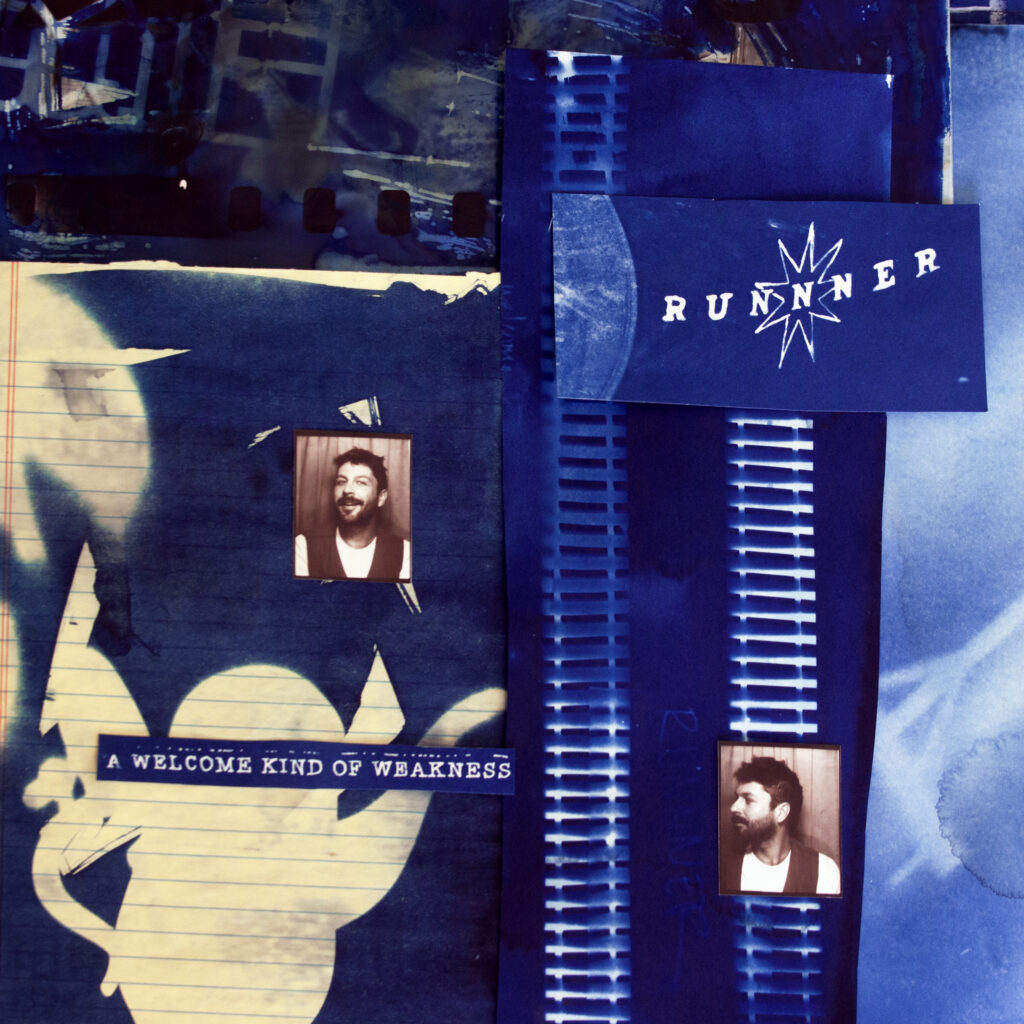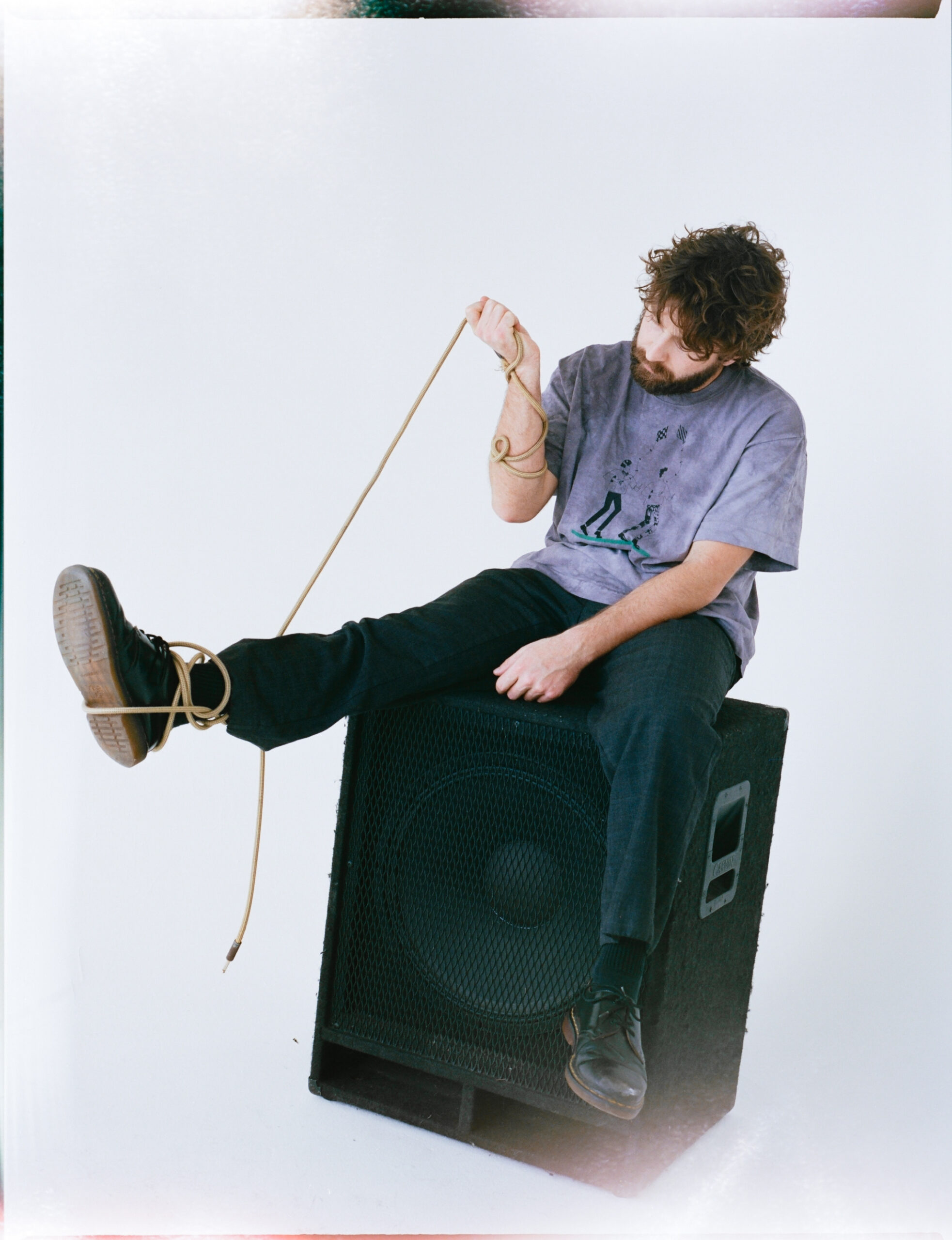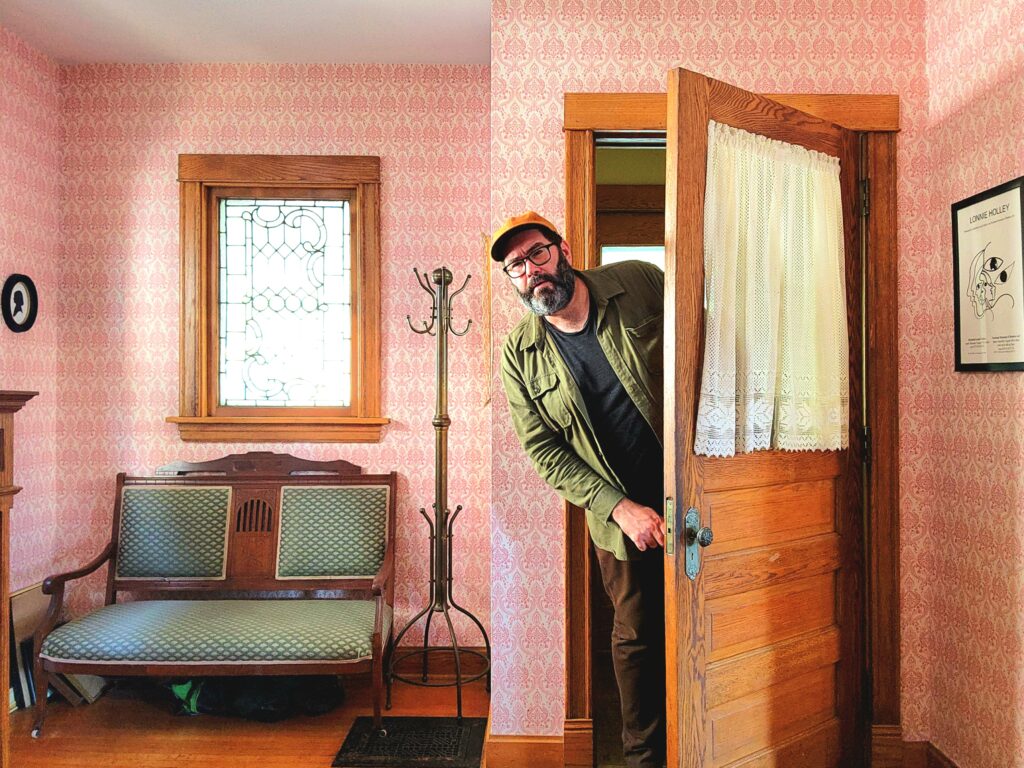Runnner’s sophomore full-length, A Welcome Kind of Weakness, emerged from a simultaneous tear in songwriter Noah Weinman’s body and life. Written during the months spent bedridden and healing from a torn achilles and the drastic upheaval of a breakup, the 11 songs on this record are Weinman’s most bracing, inviting the perceived vulnerability of the album’s title willingly. But at the same time, these songs are Runnner’s most present, defiant and self-assured, a reminder of the resolve that can come from gracefully accepting submission.
In the summer of 2022, Runnner’s Noah Weinman found himself amidst a lot of change. On the one hand, he was going through a breakup—moving house and reeling. But on the other hand, life was on the up. He was preparing to release his highly anticipated debut record on Run For Cover Records in the new year, like dying stars, we’re reaching out, and would be on the road for the better part of three months in support of it, doing his first headline run of North America at the start of 2023.
This turning point in his career was the culmination of five years spent working in the Los Angeles music scene, and building a name for the Runnner project, as well as for himself as a producer (for Skullcrusher and later Gigi Perez, Odie Leigh and Horsepower) and contributor to countless bands. And so, this moment marked a kind of arrival, the horizon point of the sustainable musician’s life he’d envisioned drawing near. It was the kind of excitement that eclipses the pain of heartbreak, for a time.
And it was excitement that seemed as though it would sustain. In the spring of 2023, Weinman returned from tour, tired but elated. Months spent performing his songs in new places with his bandmates and friends had buoyed him. He’d have a month home before heading back out again. And then, three days after his return, playing basketball with a group of friends, he turned toward a long-arcing ball at the end of the two-hour game and heard his Achilles tendon pop.
Surgery was immediate. Bed rest, necessary. Weinman wouldn’t be going anywhere for a long time.
Stuck in bed, tour cancelled, confined by the unpredictable forces that had thwarted his momentum, something else broke in Weinman, too. Whatever had been protecting him from the pain of heartbreak couldn’t withstand the present’s inertia. It seemed he’d finally have to feel it after all.
Longtime fans of Weinman’s likely fell for his signature homespun indie rock, recorded almost exclusively in bedrooms and home studios, where his poignant and self-deprecating lyrics float over beds of banjos, guitars and reverberant horns crescendoing to cathartic peaks. His sound has always been intimate and DIY even as it’s also lush and layered, a fitting package for songs that reflect the pain and anxiety mirrored in small things from the everyday—scratch offs in a birthday card and eggshells cracked accidentally into a pan.
But on A Welcome Kind of Weakness, Weinman soars for the first time in high fidelity. Runnner’s first studio record, it recalls the larger-than-life highs of the early aughts rock that Weinman grew up on, bands like Coldplay, Radiohead, and Snow Patrol with their pristine vocal presence, scintillating guitar riffs, and astral synth sparkle. This is rock music in its most delicious form, music that gave Weinman something to look forward to when he could finally play live again. “I was so frustrated with the quiet inertia of bed rest. I craved rocking out, whereas with past records my life was hectic and I wanted stillness.”Creating this sound required moving recording and production out of the home studio for the first time, which wasn’t easy at first for Weinman who’s used to having complete control over the process. “Not having the songs on my computer was really challenging. There was way less persistent tweaking.” But that trust in the process—and his touring band mates’ playing—created a sound that’s more propulsive, more enveloping, more alive and 3D.
On album centerpiece “Achilles And,” for example, jaunty verses give way to choruses that blister with distorted guitars and soaring vocal harmonies, as Weinman sings about the pain of his own powerlessness. “I fucking hate it when I need help” he belts, the line lingering over silence before the band bursts back in force. On “Get Real Sleep,” a song Weinman wrote in 2016 and retooled during his bedrest, programmed drums and cyclical guitar riffs evoke Transatlanticism-era Death Cab, as Weinman ruminates on the value and challenges of rest; “Claritin” opens with Weinman’s mournful vocals filtered over a low drone before the band slaps into brilliant clarity, toothy and bright, each pointed guitar note unmissable.
That this album sounds “so clear” in comparison to Weinman’s past work is descriptive not only of the sonic quality, but of the lyric content as well. In the wake of both his relationship and, for a moment, his body falling apart, Weinman felt compelled to “add a little more resolve” to his lyrics and to “spell out things more plainly, more narratively.” “In past songs, I was afraid to write with any sort of absoluteness or to speak straight forward because to do so would be to speak feelings I wasn’t yet ready to feel.” But on A Welcome Kind of Weakness, Weinman wanted to “own my feelings all the way.”
This is clear on heart-rending ballad “Spackle,” where Weinman reflects on his former relationship as he fills holes in the walls of the home they shared. Tender memories return (“Happily snowed in / Half of the season upstate”) alongside stark images of the relationship’s decline (“You went to bed first / And I’m playing video games / Is this how love works? / Or is this how it drains?”). But on A Welcome Kind of Weakness, Weinman isn’t interested in simply gazing regretfully at the past. He’s reaching for growth and figuring out what’s next. “I’m a bit rougher with myself on this record. The blade goes deeper,” Weinman says. “But I’m able to withstand it.”
If this album is a record of anything, it’s of Weinman struggling gracefully with the questions that emerge from these moments of undoing. Like on “Coinstar,” where Weinman chews over his seemingly at-odds desires to have both a touring musician’s life as well as to settle down and build a family. He wrote it while reading Sheila Heti’s Motherhood, in which the narrator parses her indecision about becoming a mother through the game of asking yes or no questions to golden coins. “I started writing wondering what it would be like to leave those decisions up to a coin flip.” Or on the deceptively uptempo “Split,” in which Weinman considers the end of his relationship alongside the old memory of moving home after graduating college—dual experiences of perceived failure set to the anthemic palette of power chords and transcendent vocal harmony.
It’s these dualities—weakness/resolve, nostalgia/presence, control/powerlessness—held in such close conversation that make the songs on A Welcome Kind of Weakness so affecting and relatable. We are all perpetually pulled between poles, swinging along the spectrums of experience, but it takes a certain bravery to sit in the murky middle long enough to write about it. And in his willingness to bear witness to that transitory space, Weinman’s created a powerful reminder for listeners and for himself. You may think you won’t run again, but, given time, you might.





